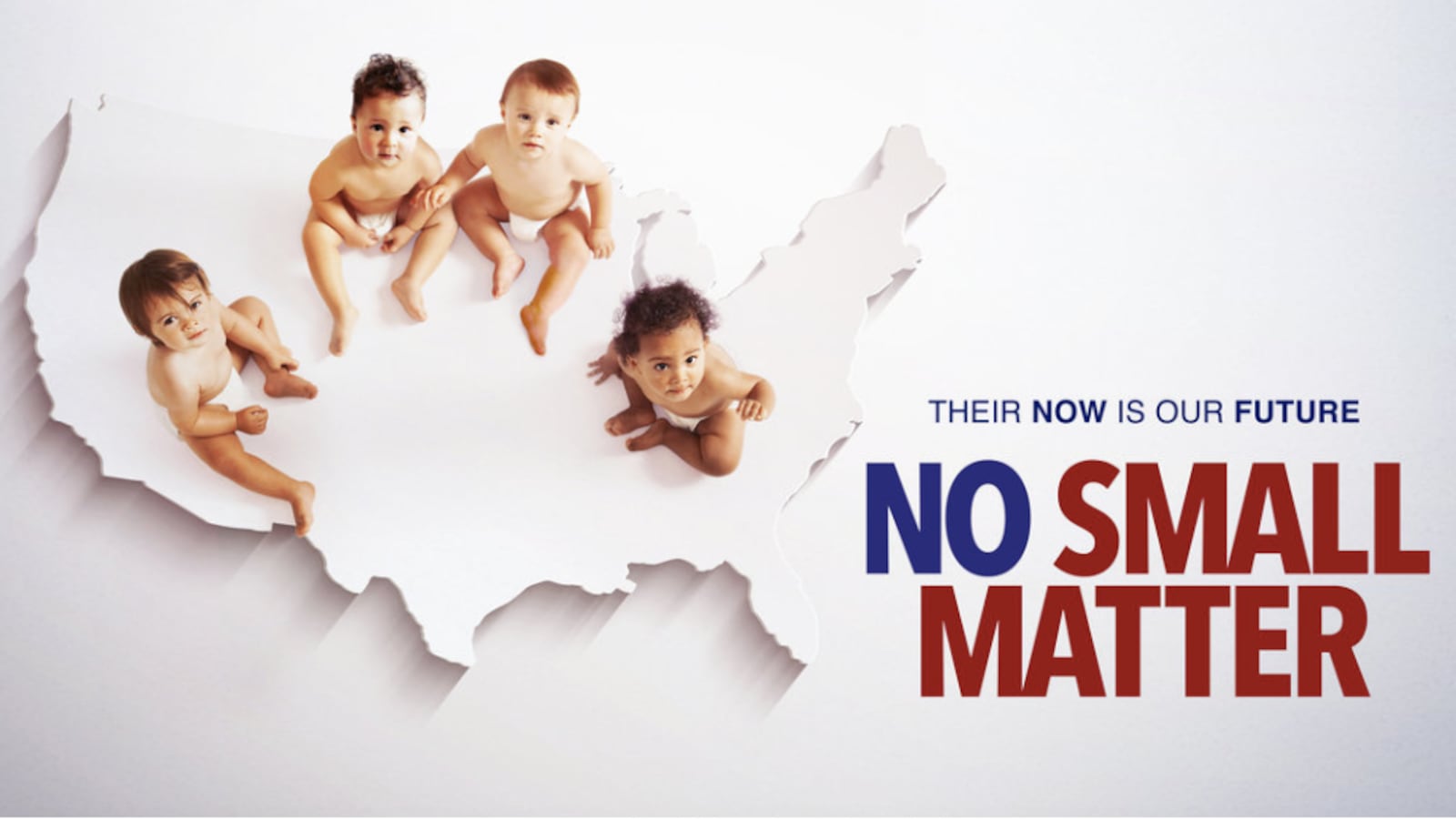A new documentary from Chicago filmmaker Greg Jacobs takes a close look at early childhood education — highlighting the struggles of exhausted parents, underpaid providers, and traumatized children.
The film, “No Small Matter,” premieres Thursday in Chicago. It lands at a time when considerable attention is being paid to early learning: Illinois’ new governor, J.B. Pritzker, just signed a budget that gives more money to state early childhood programs. Pritzker, a billionaire philanthropist known for his support of such initiatives, is slated to speak at the premiere.
“No Small Matter” takes viewers into homes, daycares, and preschools in Chicago’s northern suburbs and in small-town Nevada and Virginia.
Jacobs, who wrote and co-directed the new documentary, had written a book that focused on school desegregation efforts in Ohio. But when his Chicago-based company, Siskel/Jacobs Productions, started working with Ounce of Prevention, a Chicago advocacy group for children birth to five, he wondered why he had never thought of early childhood education as a discrete idea, capable of changing students’ lives and those of everyone around them.
“These are huge issues that Chicago has and the whole country has, but early childhood is a place that everybody can agree on,” he said. “If we start with supporting families with children of that age, then the ripple effect will come out with all of the other challenges”
Jacobs spoke to Chalkbeat Chicago ahead of the screening. This interview has been edited for length and clarity.
Why do you think early education was a compelling issue for a documentary now?
I think the science is now so compelling that these early years are really, really fundamental in shaping our brains and bodies for a lifetime — but I’m not sure that everybody has caught up to it yet.
We realized we had to answer not just why is early learning so important, but why is it so important now? A huge piece of that is the demand for the workforce, that you need people who have different skills than in the past, and if we don’t start thinking about that early on, we’re not going to get that workforce.
In a certain way, there’s no natural constituency for this issue. If you don’t have kids yet, it’s certainly not going to be front and center. And then when you actually have kids that age, there’s no time for thinking about it as a political cause. Once the kids are out of that age, you’re like “oh yeah that was interesting, but now I care about this later time.” The only time that people really are dealing with it in an immediate sense is the one time when they are just too exhausted to deal with it in the political sense.
Also, we had one expert say people get into early childhood because they’re nice, so there isn’t the kind of anger that can drive political movement. The way things are going now, some of that anger is starting to build, and I think that will be very powerful.
In your film, you highlight the story of Rachel Giannini, a teacher in the northern Chicago suburb of Highland Park. Why did you choose to focus on her?
One of the things that people told us early on was that there has to be a level of quality that makes kids feel safe and secure and allows them to learn along the way. When we saw Rachel and [her team] at work in this incredibly diverse classroom and saw just the magic that they created, it was like, here is our ideal.
That thread through the film is such a source of joy for people and emotion, to see the incredible presence that Rachel has with those kids, that she’s never anything less than present, and to see this totally incredible environment that she creates.
One of the issues highlighted in your film is the tension between high-quality programs and the cost to deliver them. How did you show these forces in your documentary?
We tried to portray people in their everyday, real lives. You realize any parent, just about, is thinking, “We are paying way too much and nowhere near enough.” I think people have to realize that this issue is all about the people who are giving the care, whether it’s the parents or the neighbor or the childcare professional.
We don’t have the subsidies for families, especially in the middle [class]. And the salaries for the providers are on average $11.46, for an early learning provider, so incredibly small, with little hope of a significant raise.
You end up with this unsustainable problem: parents can’t pay for it and the workforce can’t afford to do the work, so somewhere there has to be an investment from the outside that will start to make it sustainable for families and sustainable for the workforce.


